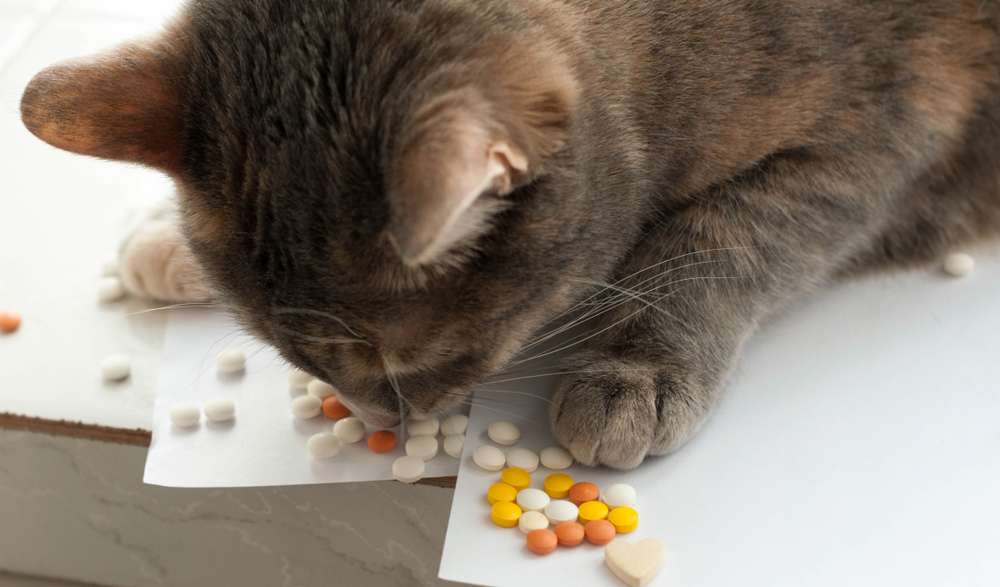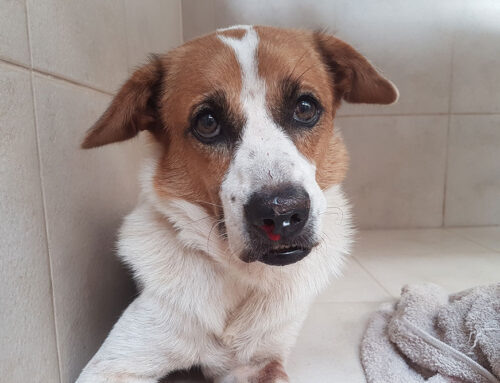Toxic substances are everywhere in your home, yard, and garden that can quickly result in deadly consequences for your furry pal, but knowing about the common toxins you are hiding can keep your pet safe from harm. Read on to learn the most common pet toxins found in homes, yards, and gardens.
Pet toxins in your kitchen
Although your kitchen is the source of many tasty treats and drool-inducing dishes, it’s best to block your pet from this dangerous room, because many common foods are toxic to pets, including:
- Chocolate — Most pet owners know that chocolate is dangerous for dogs, who are strongly attracted to this sweet treat. Keep in mind that the darker the chocolate, the more toxic, so a small amount of baker’s chocolate can lead to vomiting, diarrhea, and seizures.
- Garlic, onions, leeks, and chives — These members of the Allium family deliciously flavor many dishes, but they can destroy your pet’s red blood cells and cause anemia, if ingested.
- Grapes and raisins — An undetermined amount of ingested grapes or raisins can cause fatal kidney failure in pets, so avoid sharing even a single grape or raisin.
- Xylitol — This popular sugar substitute is commonly found in sugar-free foods, and also in many other products, such as toothpaste, sunscreen, and cough syrup. If your pet ingests xylitol, they can suffer from a drastic drop in blood sugar, along with liver failure.
Pet toxins in your bathroom

Although your pet may enjoy a refreshing drink from the cool toilet bowl, keeping your furry pal out of your bathroom at all times is in their best interest. Some of the most hazardous items for your pet that can be found in the bathroom include:
- Human medications — When taking over-the-counter (OTC) medications for pain or gastrointestinal (GI) problems, or your daily heart or antidepressant medications, you can easily drop a pill or two. But, if your pet sniffs out the dropped medication or you share your prescription pain medication to help ease their arthritis pain, they can develop serious health problems. Pets metabolize medications differently than people, so can easily suffer from toxicity.
- Cleaning chemicals — Bleach and other cleaning products used to scrub the shower, toilet, and sink can cause severe health issues in pets who lap up spilled substances.
Pet toxins in your home
Other various home rooms can hold hidden hazards, so be aware of common toxins that could be stored in your bedroom, living room, or elsewhere:
- Pet medications — Wherever you stash your pet’s parasite preventives, joint supplements, or calming chews, ensure they are well out of reach and kept in a securely latching cabinet. While many preventives and supplements have a wide safety margin, medications used to treat health conditions like heart disease and osteoarthritis can easily cause an overdose.
- Essential oils — Many essential oils, including peppermint, eucalyptus, tea tree oil, lavender, and many more, are not safe for use around pets. Do not use oil warmers or diffusers containing oils, which are toxic to pets, anywhere in your home.
- Recreational drugs — Recreational drugs, like hallucinogenic mushrooms and marijuana-based drugs, have made the ASPCA’s most common pet toxins list for the first time in 2022. Ensure these products are stored safely out of your pet’s reach, and do not share.
Pet toxins in your yard and garage
When letting your pet outside, be aware that common toxins are lurking in your yard and garage. These include:
- Rodenticides — If you use rodenticides on your property, ensure your pet cannot access the bait. Pets can also become poisoned by eating dead rodents, so pet-safe rodent repellent products are the best choice.
- Insecticides and pesticides — Products that keep away or kill ants, snails, slugs, and wasps can be incredibly dangerous to pets, so do not use them where they are accessible to your pet.
- Fertilizers — Many fertilizers contain ingredients, such as bone, blood, and feather meal, that are hazardous to pets.
Toxic substances are not to be tangled with, as they can rapidly result in serious illness or death for your four-legged friend. If you suspect your pet has eaten a toxin, contact an animal poison control hotline immediately. Then, give our North Waterloo Veterinary Hospital team a call to let us know you are on your way. We will be ready to treat your pet.







Leave A Comment